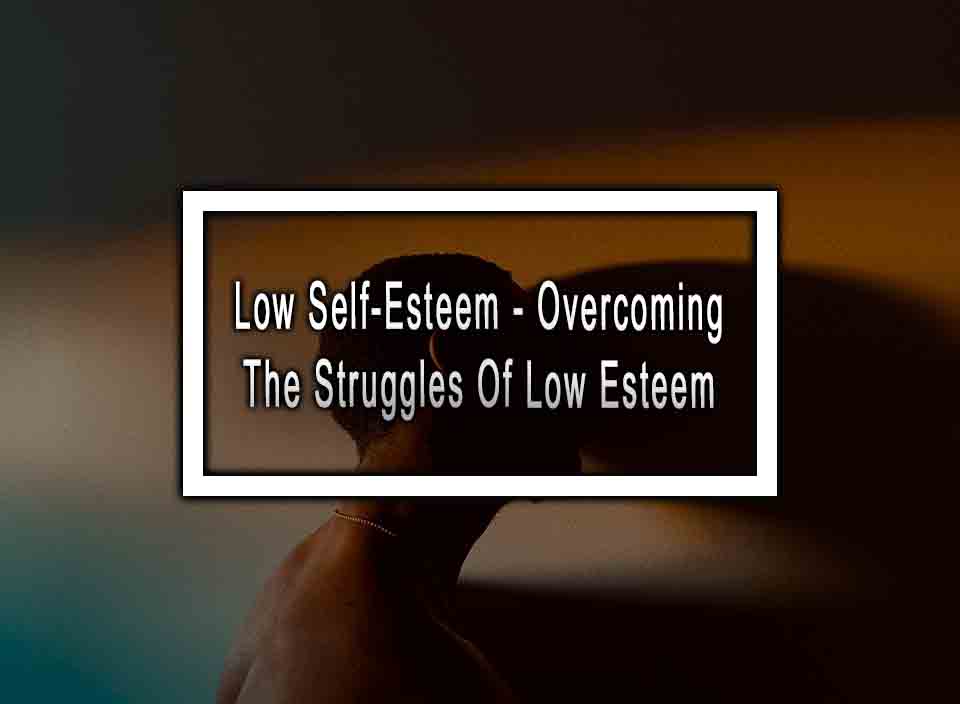Table of Contents
ToggleLow Self-Esteem: Understanding the Roots of Self-Doubt
Welcome to “Boosting Your Self-Esteem: Overcoming the Struggles of Low Esteem.” In this article, we embark on a journey toward understanding the challenges of low self-esteem and discovering effective strategies to build a healthier self-perception. Whether you or someone you know battles with low esteem, read on to find valuable insights and actionable tips to enhance self-worth and embrace a more fulfilling life.
How Low Esteem Develops and Impacts Your Life
Low self-esteem, like an unwelcome guest, can find its way into our lives through a range of experiences and influences. Often stemming from childhood experiences, such as critical parenting, bullying, or trauma, low esteem manifests in various ways throughout our lives, hindering personal growth and happiness. Additionally, societal pressures, negative body image, and comparisons with others can further erode our self-worth, leading to a cycle of self-doubt, anxiety, and depression.
From Self-Criticism to Self-Love: Nurturing a Positive Self-Image
Overcoming low self-esteem requires a proactive approach centered around cultivating self-love and shifting our self-perception. Here are some powerful strategies to kickstart your journey toward a healthier self-image:
1. Identify Negative Thought Patterns: Start by recognizing the inner narratives that perpetuate feelings of inadequacy or self-doubt. Challenge these thoughts by replacing them with positive affirmations and realistic perceptions of yourself.
2. Practice Self-Compassion: Treat yourself with the same kindness and empathy as you would a dear friend. Acknowledge and embrace your strengths, accomplishments, and unique qualities. Remember, perfection is an illusion, and it’s our imperfections that make us beautifully human.
3. Surround Yourself with Positivity: Surrounding ourselves with uplifting, supportive individuals can have a profound impact on our self-esteem. Seek out relationships with people who appreciate and value you for who you are, encouraging personal growth and fostering a positive self-image.
Seeking Professional Support: The Role of Therapy and Self-Help Resources
While self-help techniques can be powerful tools in enhancing self-esteem, seeking professional support is equally vital in addressing deep-rooted issues. Therapists, counselors, and life coaches can provide expert guidance and create a safe space for exploring the underlying causes of low self-esteem. Through cognitive-behavioral therapy (CBT) or other suitable approaches, individuals can gain a better understanding of their self-perception and develop effective coping mechanisms.
Remember, embarking on a journey toward improved self-esteem takes time, effort, and patience. Celebrate small victories, acknowledge setbacks, and be gentle with yourself throughout the process. By investing in your self-worth, you pave the way for a happier, more confident version of yourself.
Conclusion
As we conclude our exploration of low self-esteem and its impact on our lives, it is crucial to remember that nobody is immune to self-doubt and feelings of inadequacy. Nevertheless, armed with knowledge and self-empowerment, we can break free from the shackles of low esteem and embrace a more positive, fulfilling existence. By incorporating the strategies discussed and seeking professional support when necessary, reclaim your self-worth, and thrive in a world that desperately needs your unique contributions. Boosting your self-esteem begins today!
Low Self-Esteem FAQ
Here are the most common questions about low self-esteem.
1. What are the causes of low self-esteem?
Low self-esteem can stem from various factors, including childhood experiences, negative feedback or criticism, traumatic events, physical or emotional abuse, societal pressures, perfectionism, and personal insecurities.
2. What are the signs of low self-esteem?
Signs of low self-esteem may include excessive self-criticism, negative self-talk, lack of confidence, constant comparison to others, difficulty accepting compliments, fear of failure, social withdrawal, and seeking constant validation from others.
3. How does low self-esteem affect daily life?
Low self-esteem can have a significant impact on one’s daily life. It may hinder personal relationships, limit career success and advancements, lead to feelings of depression and anxiety, and result in a lack of motivation to pursue goals and dreams.
4. Can low self-esteem be overcome?
Yes, low self-esteem can be overcome with self-awareness, self-compassion, and intentional efforts to change negative thought patterns. Seeking therapy, practicing positive affirmations, setting achievable goals, and surrounding oneself with positive influences can also help in improving self-esteem.
5. What are some simple daily practices to boost self-esteem?
Practices to boost self-esteem include practicing self-care, setting realistic goals, challenging negative thoughts, focusing on personal strengths and achievements, and surrounding oneself with positive and supportive people. Engaging in activities that bring joy and practicing self-compassion are also helpful.












